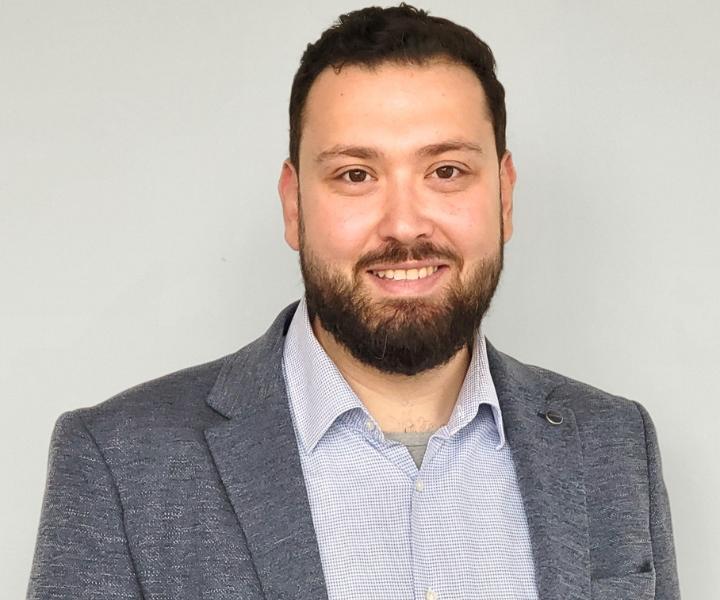Imagine a smartwatch that senses when someone feels anxious or a digital assistant that can detect a person’s emotional distress before they say a word.
These are some of the possibilities being explored through the research of Karim Alghoul, part-time professor at the School of Electrical Engineering and Computer Science. Professor Alghoul’s work is focused on affective computing, an emerging field that’s redefining how humans and computers interact.
“Technology is a big part of our daily lives, but it often lacks the ability to understand how we feel,” says Alghoul. “My research is about making that connection — building systems that can recognize human emotions so that technology becomes more responsive, more intuitive and, ultimately, more human-centred.”
Bringing emotional intelligence to machines
Affective computing teaches machines to recognize and respond to emotional cues, combining data from facial expressions, tone of voice, heart rate and other physiological signals.
Alghoul’s work uses artificial intelligence, signal processing and wearable technologies to explore how computers can become more emotionally aware.
The goal: to reduce the emotional disconnect between humans and machines and to create technology that feels more natural to interact with. These emotionally aware systems can help make digital interactions smoother, more intuitive and more helpful in everyday life.

“My research is about making that connection — building systems that can recognize human emotions so that technology becomes more responsive, more intuitive and, ultimately, more human-centred.”
Karim Alghoul
— Part-time professor, School of Electrical Engineering and Computer Science
Emotionally aware technology in health care
The applications of Alghoul’s research show the most promise in health care.
He explores how wearable devices, like smartwatches, can detect emotional states such as stress and depression. These devices can provide valuable insights to both users and health-care professionals by identifying and tracking stress patterns or emotional shifts in patients over time.
In elder care, this technology could detect early signs of mental health concerns without the patient needing constant supervision.
Alghoul is also working on systems that use cameras to monitor heart rate and other data by analyzing facial cues. This type of contactless technology offers an innovative alternative for patients with burns, skin injuries or conditions that prevent them from wearing traditional sensors.
These systems could even support emergency room staff by helping them to quickly identify patients who are in emotional distress and need urgent care.
Offering mental health assistance
Alghoul is currently focused on building a personal therapist assistant. It combines emotion detection through physiological signals with the capabilities of large language models (LLMs), such as ChatGPT.
This assistant doesn’t just wait for the user to initiate an interaction — it can start conversations based on detected emotional cues. The goal is to offer a more human-like, responsive support system for people experiencing stress, anxiety or emotional exhaustion.
This innovative approach blends emotional intelligence with natural language processing (NLP), opening the door to more proactive and empathetic digital tools for mental health.
Human-centred research and collaboration
Alghoul’s work is rooted in collaboration. At uOttawa, he conducts his research under the supervision of Hussein Al Osman, associate professor and head of the Multimedia Processing and Interaction Group, and Abdulmotaleb El Saddik, distinguished professor and University Research Chair in Ambient Interactive Media and Applications. El Saddik leads the Multimedia Communications Research Laboratory.
For his part, Alghoul is a PhD candidate with professional experience in the telecommunications industry. This means he brings both academic expertise and industry insights to his research.
Looking ahead, Alghoul plans to build a working prototype while also collaborating more closely with experts in psychology to ensure that emotionally aware AI systems are accurate, ethical and grounded in real human behaviour.
Shaping a more empathetic digital future
At the uOttawa Faculty of Engineering, researchers like Alghoul are working to develop emotionally intelligent technologies and AI systems that improve lives. Affective computing is still a growing field, but its impact is already visible.
From improving mental health support to building better learning tools, Alghoul’s work in affective computing and emotionally aware technology is helping to shape a future where machines understand more than just data — they understand people.
